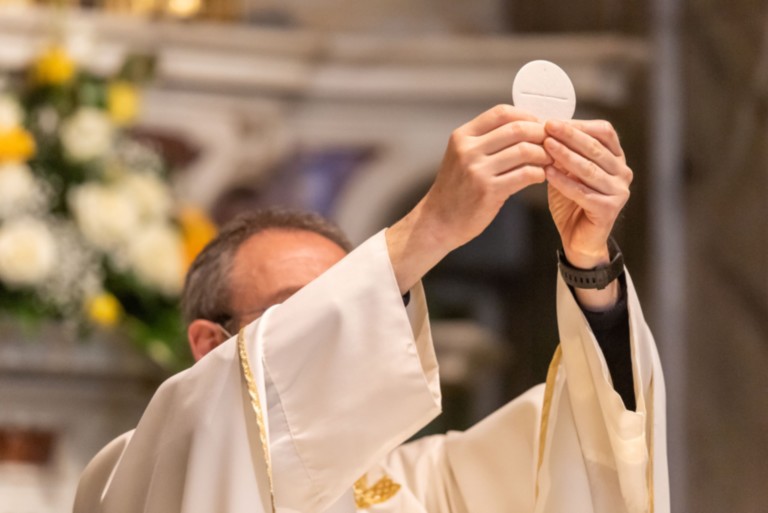Corpus Christi : the Underlying Unity of the Human Family

This Sunday, we gather to reflect on a profound metaphor that is presented to us in the Epistles of Paul, the Gospels and contemporary mystics like Teilard de Chardin: the Body of Christ.
The apostle Paul uses the analogy of the body of Christ extensively in his Epistles to teach that the church is not confined to walls or borders. It is universal, encompassing all of humanity. In 1 Corinthians 12:13, Paul writes, “For we were all baptized by one Spirit so as to form one body—whether Jews or Gentiles, slave or free—and we were all given the one Spirit to drink.” This passage calls us to a radical inclusivity, where no one is excluded from the love of Christ.
Later in Corinthians Paul reminds us that just as the eye cannot say to the hand, “I don’t need you,” we cannot dismiss the value of others who are members in the same body.
Inclusivity is not merely a suggestion; it is a mandate. In Galatians 3:28, we read, “There is neither Jew nor Gentile, neither slave nor free, nor is there male and female, for you are all one in Christ Jesus.” Our unity in Christ transcends all earthly divisions, calling us to embrace every person as a cherished member of the Body of Christ.
This theme of radical inclusivity also permeates all four Gospels. We are taught to love our enemies and esteem the lowly and downtrodden.
In the Gospel reading this Sunday from Mark, we find Jesus instituting the sacrament of Communion during the Last Supper. He took bread, and after blessing it, broke it, and gave it to them, saying, “Take; this is my body” (Mark 14:22). Jesus does this in the context of inviting the lepers and the outcasts to his table.
In one of his most striking pieces of mystical literature, Teilhard de Chardin wrote “The hymn of the universe,” where he expressed the idea of the Eucharist extending beyond the church walls into the cosmos. He saw every element of nature as part of a grand Eucharistic celebration, with the world itself serving as an altar.
Teilhard insisted on viewing the human population as one global family, recognizing the need for global solidarity. He believed that the act of seeing, or growing in consciousness of the reality we live in to be essential to that unity.
From my earliest memories, the metaphor—or more accurately, the sacrament—of communion has held a special place in my spirituality. It serves as a profound reminder of our interconnectedness and shared humanity. Just as the bread and wine symbolize Christ’s body and blood, they also represent the underlying unity of all people. By participating remotely in this online ceremony we join with Pope Francis’s exhortation to pray for the unity of the human family, transcending divisions and embracing the evolution of consciousness towards a more interconnected and harmonious world.
Arthur Blomme, May 30 2024
